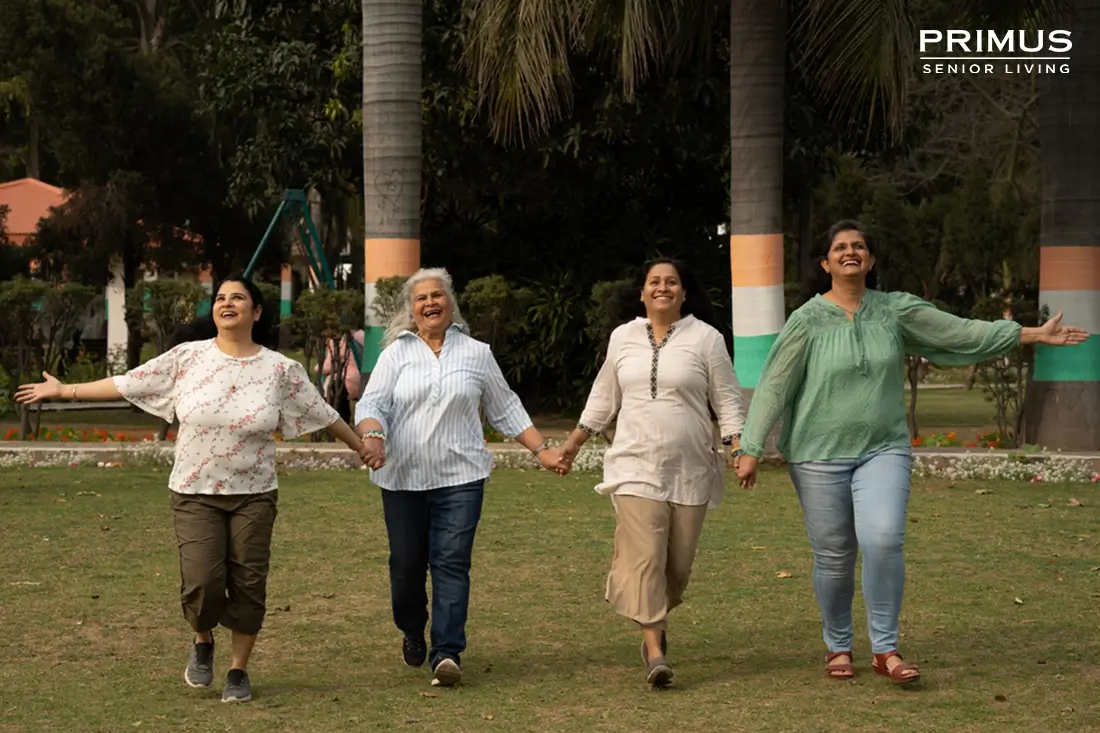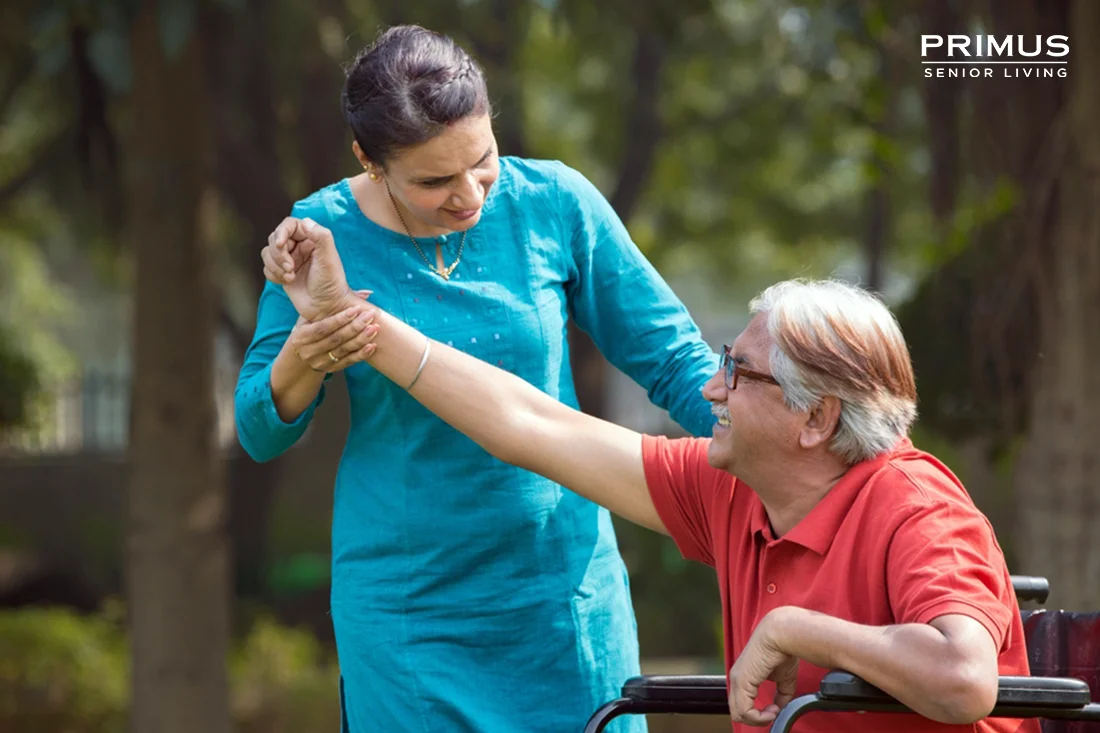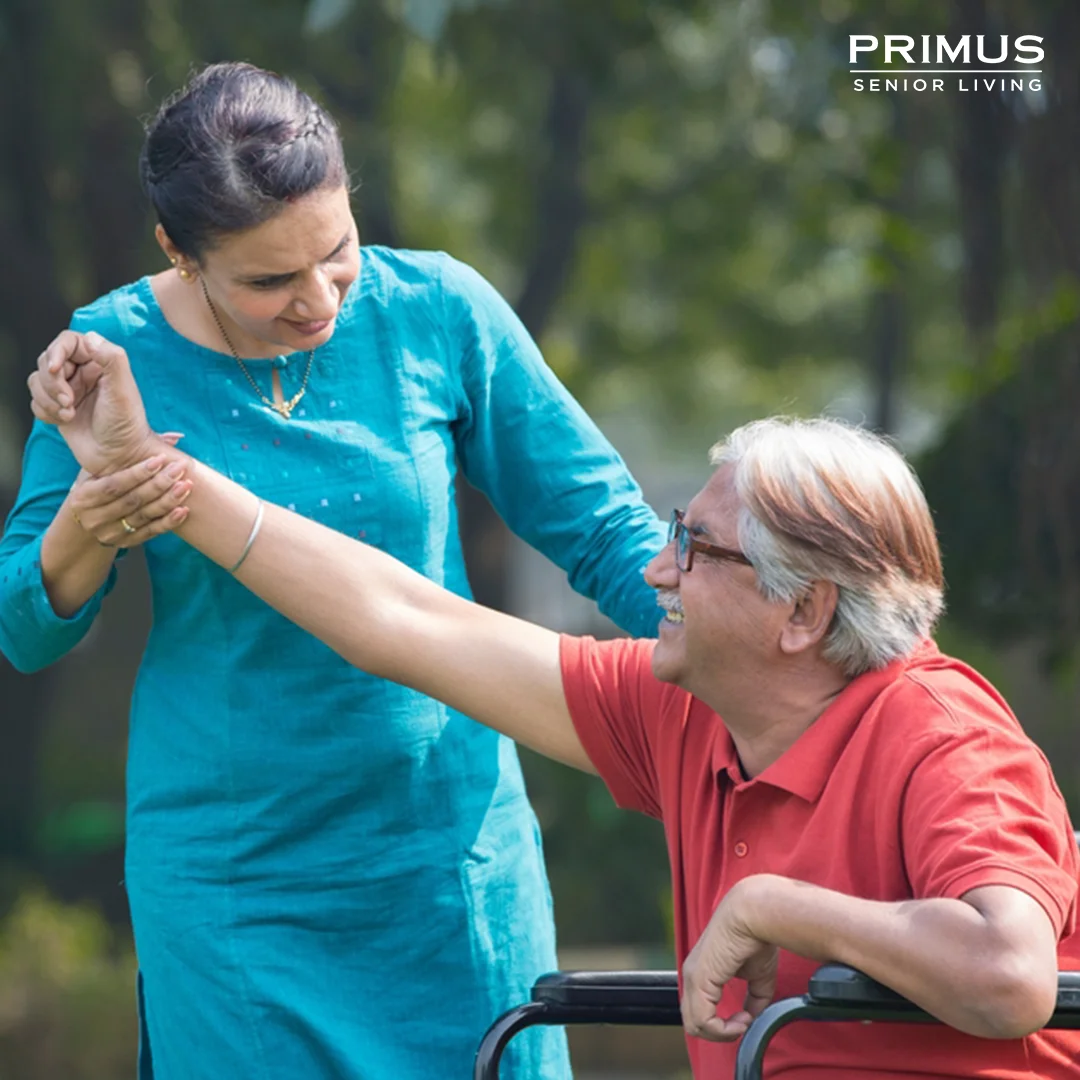Retirement days come with mixed feelings. There’s the part where seniors get to chill all day and enjoy the life they have saved up for, and at the same time, they have to pay extra attention to the food they eat and the chores they do because anything that impacts health needs an extra eye. There could also come a time when they need constant care and assistance.
When you realise your parent or any senior adult in the house is unable to continue with their normal tasks, maybe it’s time for a change in their living situation. An important thing to note: seniors may prefer assisted living not just because of their physical ability concerns but because assisted living facilities will allow them to be around like-minded individuals, making for a better social life.
The fact is that ageing need not inevitably result in difficulties navigating day-to-day living. Seniors can maintain their independence while still living in safety and comfort by following certain guidelines. And that is where assisted living comes in. As the name suggests, assisted living provides social interaction, expert care and support, and an all-around higher standard of living. By the end of this blog, you will be able to tell whether you or a senior in your household needs assisted living facilities by understanding the 11 signs it may be time for assisted living.
When Is It Time?
Although growing older is a normal part of life, it frequently presents difficulties that can make even the most basic chore seem like insurmountable barriers. We may observe subtle or occasionally overt indications that our loved ones are having difficulty retaining their independence as they get older. Even though choosing assisted living isn't always simple, knowing when it's time can help ensure that our elders enjoy, live safely, and spend their golden years with dignity.
11 Signs It Might Be Time for Assisted Living
1. Difficulty with everyday tasks
It may be time for extra help when simple activities like getting dressed, taking a shower, or simply brewing a cup of tea become too difficult. In order to ensure that elders preserve their dignity while getting the care they require, assisted living offers assistance with any tasks seniors need help with.
2. Frequently occurring falls or safety issues
One of the main reasons for catastrophic injuries in the elderly is falls. Your loved one may require a safer living environment if they have a history of falls, slips, or near-misses. In order to reduce dangers, assisted living facilities retain physical elements like grab bars, emergency response systems, and 24-hour support.
3. Ignoring prescription drugs or doctor's appointments
Serious health repercussions may result from missing prescription drugs or doctor's appointments. An assisted living facility can offer the structure and reminders required for a senior's well-being if they have trouble remembering their medicines or medical requirements.
4. Poor diet or loss of weight
Malnutrition may arise if the refrigerator is empty, stocked with old food, or meal preparation has been neglected. To keep elders well and fed, a lot of assisted living facilities provide wholesome, chef-prepared meals that are catered to dietary requirements.
5. Ignoring personal cleanliness and hygiene
An untidy living area or a rapid reduction in grooming practices may be signs of trouble keeping up with daily activities. Services like personal care and housekeeping are provided by assisted living so that seniors can live in a clean, comfortable environment without stress.
6. Growing loneliness and isolation
Physical care is essential, but so is companionship. Assisted living homes provide a lively social environment with events, activities, and chances to engage with peers, which can help seniors who are avoiding friends, retreating from social activities, or displaying feelings of loneliness.
7. Perplexity or cognitive impairment
Being forgetful is one thing, but losing your way in familiar surroundings or forgetting the names of people you love is quite another. It might be time to think about a senior living option with memory care help if cognitive impairment is interfering with day-to-day activities.
8. Financial difficulties and unpaid bills
Unusual purchases, unpaid bills, or piles of unopened mail could indicate that money management has gotten out of control. Assisted living communities lessen this load by handling day-to-day financial responsibilities.
9. Mobility issues
It might be challenging to move around the house safely if you have mobility issues. With lifts, mobility aids, and staff trained to help elders walk around safely and without the danger of falling, assisted living facilities are made to be easily accessible.
10. Family Caregivers Feeling Overwhelmed
It is both satisfying and challenging to care for a loved one, especially seniors. If the family members are feeling overburdened, worn out, or unable to offer the necessary degree of care, assisted living can be an option that guarantees seniors receive professional support while letting families concentrate on their relationships.
11. Changes in behaviour
Seniors who exhibit a shift in behaviour and are unable to pinpoint the reason are typically unaware that they need additional care and assistance with everyday tasks. Families and carers must, therefore, record any behavioural changes and determine the underlying cause. Even if they don't express it, their mood and behaviour tend to show that they are unhappy with their current living situation.
Understanding When Assisted Living Isn't The Answer
Once you have seen the 11 signs it might be time for assisted living, you have to determine if your situation necessitates assisted living. It's equally important to identify the situations when assisted living is not appropriate. For example, a skilled nursing facility or memory care centre might be a better option if a senior needs 24-hour monitoring, intensive medical care, or specialised treatment for severe illnesses like late-stage Alzheimer's. Residents who require assistance with everyday tasks but do not require round-the-clock medical care are usually the ones who meet the physical requirements for assisted living.
How Primus Senior Living Can Help
At Primus Senior Living, we recognise that choosing to move into elderly care is an extremely personal choice. All of the services required to guarantee a happy, independent, and comfortable existence are offered by our communities.
Primus Senior Living is aware that this change is a very personal choice and that it involves starting a new chapter in life rather than merely relocating. Hence, our senior living homes provide:
-
Individualised care plans based on each person's requirements
-
Cultural events and social activities for seniors, such as art workshops and yoga classes
-
Professional staff is on call around the clock
-
Healthy food options with expert chefs who care about your nutrition
-
Gorgeous, safe living areas
-
Wellness initiatives aimed at promoting senior health
Next Steps: Finding The Right Assisted Living Community
It could be time to look into assisted living options if you or a loved one exhibits a number of these symptoms from the 11 signs it might be time for assisted living. Yet, where do you begin?
1. Assess needs: Determine the degree of care needed, ranging from specialised memory support to assistance with everyday tasks, and analyse when is assisted living not appropriate for you.
2. Visit communities: Take a tour of senior living communities to gain a sense of the setting, facilities, and standard of care.
3. Talk with family: Have open conversations about the best care options with family members.
4. Examine financial options: Learn about assisted living expenses, insurance coverage, and any financial aid.
5. Arrange a smooth transition: Although relocating to an assisted living facility is a significant adjustment, it may be a smooth and happy one with the correct assistance.
We encourage you to look through our options if you or a loved one is thinking about moving into a senior care facility. Discover how Primus makes the transition to senior life easy and enjoyable. Visit our website to learn more.
Making the Transition Smoother
Approach the discussion with compassion and understanding when the indications that it may be time for assisted living become clear. Remember, the goals are to improve quality of life and provide safety, not to take away independence.
Be sure to keep in mind that different facilities have different physical criteria, so it's critical to locate a community that meets your loved one's unique physical requirements for assisted living. The ideal community will feel more like a new home with lots of chances for development and connection rather than just a facility, so you need to decide when is assisted living not appropriate and when you need to avail facilities.
Moving into assisted living doesn't have to be a challenging experience. An exciting new chapter full of companionship, security, and peace of mind may begin with the correct community, understanding, and support. Visit our website to learn more about how Primus can help make this important transition as smooth as possible.
Frequently Asked Questions
1. What are the physical requirements for assisted living?
Assisted living communities are designed to support seniors who need help with daily activities but do not require intensive medical care. Typical physical requirements include the ability to move with or without mobility aids, moderate independence in personal hygiene, and the capability to participate in social activities.
2. When is assisted living not appropriate?
Assisted living is not suitable when a senior requires constant medical supervision or intensive nursing care, such as in the case of severe cognitive impairments like advanced Alzheimer's or chronic medical conditions needing specialised treatment.
3. How can family members recognise when it's time for assisted living?
Family members should look for signs such as difficulty performing daily tasks, frequent falls, poor personal hygiene, increased isolation, or confusion. Other indicators include unexplained weight loss, missed medications, and noticeable behavioural changes.
4. How does assisted living improve a senior's quality of life?
Assisted living provides a safe and comfortable environment where seniors receive personalised care tailored to their needs. These communities offer assistance with daily activities, nutritious meals, housekeeping, and social engagement opportunities, reducing feelings of isolation.
5. How can Primus Senior Living help during the transition to senior living?
Primus Senior Living offers a supportive and nurturing environment tailored to the needs of each resident. With personalised care plans, social and cultural activities, and professional staff on call 24/7, Primus ensures a smooth transition into senior living. The community also provides nutritious meals, beautiful living spaces, and wellness programs focused on senior health. Families can explore the options and schedule visits to experience the warm and welcoming atmosphere Primus offers. For more information, visit our website.
You may also like

Embracing Change: Transitioning From Independent House To Senior Living Apartment
Transitioning from living independently in a house to moving into a senior living apartment is a significant decision for many seniors.
READ MORE
Rising Demand Of Retirement Homes In Chennai
For the longest time, retirement homes have been taboo. People believed retirement homes to be where the elderly went when they were alone. However, with children living away from their parents for various reasons such as job opportunities and marriage, people in India are becoming more open about retirement homes/ senior living communities. Chennai, the capital city of Tamil Nadu, is the largest economic and cultural Indian city. Unlike other metropolitan cities, Chennai offers a laid-back lifestyle. Today, along with other Indian cities, even Chennai has increased the demand for retirement homes.
READ MORE

Leave a Comment